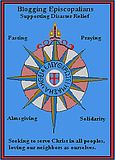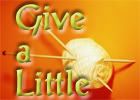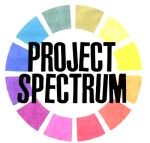on the road with Jacob
Sermon, Eucharist, Royal School of Church Music Summer Course, TulsaLast time on “As the Book of Genesis Turns,” Rebekah the wife of Isaac, daughter-in-law of Abraham, discovers a prophecy of God related to her twin sons; Jaccob manipulates his brother Esau out of the elder brother’s birthright; Isaac tells Esau to prepare to receive his patriarchal blessing but Rebekah sneaks Jacob in to get the blessing instead; Esau threatens to harm Jacob; Rebekah and Isaac send Jacob away to find a wife—and it is on that errand that our story opens this morning, with Jacob, who has technically supplanted his elder brother. He seems to have won and yet at this moment he has been exiled from his family—not knowing if he will ever return—and beyond the vague instruction to go get himself a wife, has no idea what will come next.
In a time when any one of us can hop on a plane and fly safely across the globe, or drive a hundred miles in a day without thinking about anything more than the cost of the gas, it is hard to put ourselves in Jacob’s place on that lonely evening at Bethel, with nothing but a stone for his pillow. To be sent away from your family in that time could be a death sentence. Anyone could rob you or take vengeance upon you without your family’s protection. And there was no QuikTrip, no AAA to help out if your donkey broke down, no McDonald’s oasis on the Canaan Turnpike for a quick bite. Jacob is alone, no family or servants. Alone in the wilderness, even the simple act of falling asleep means taking a huge risk.
Jacob the underhanded—Jacob the deceiver—left alone in the darkness to contemplate the actions that have led him to this moment. If he’s thinking about God at all—and up until this point there is no evidence that he cares at all for the God of his ancestors—he probably thinks that his actions have left him to be abandoned and condemned.
So imagine his surprise when God appears to him in a dream and assures Jacob of the promise God made to him and his family. It is undeserved and unmerited and yet Jacob has received God’s favor.
IT would be easy for us as observers to wonder why God has chosen this dysfunctional family and this individual in particular to invest in, to build God’s plan for the future. This one? Really? A liar and a cheat? A manipulator and a thief? The legitimate heir according to the rules of society at the time—Esau—has been tricked out of his inheritance for THIS guy—and it’s part of the plane. On the surface, betting all of the money on Jacob seems like a strange plan indeed.
And yet, Jesus reminds us in this morning’s Gospel that the casual observer is not privy to God’s understanding of individual human beings in the parable of the wheat and the weeds. The particular weeds Jesus refers to, when they are young, look remarkably like wheat—so it is only in the fullness of time that it will be obvious what is productive and fruitful versus what is empty and void. And it is God’s job, not ours, to make the final judgment between the two.
That God has a place for Jacob and Esau—God does not abandon Esau, either—is good news for you and for me. That only God can tell the difference between weeds and wheat is good news for you and for me. It’s all very good news for young Ethan, baptized this morning. Nothing we do is removed from the realm of God’s care and love, and only in the end will God what is fruitful and what is not. So we can let go of worrying whether we are good enough to be part of the kingdom of God. If God can make use of a cheat and coward like Jacob, and slow-witted, impulsive Esau—God can make a place for any and all of us.
Whether we are safely immersed in a loving family or on the road to exile like Jacob, God does not abandon us. The road may sometimes be dangerous, but God is always with us, blessing us in our faults and our gifts. We may not always be able to see the vision of the kingdom, the ladder connecting heaven and earth, but in baptism and communion we are connected to it, always being reborn out of exile in the wilderness into everlasting life.
























